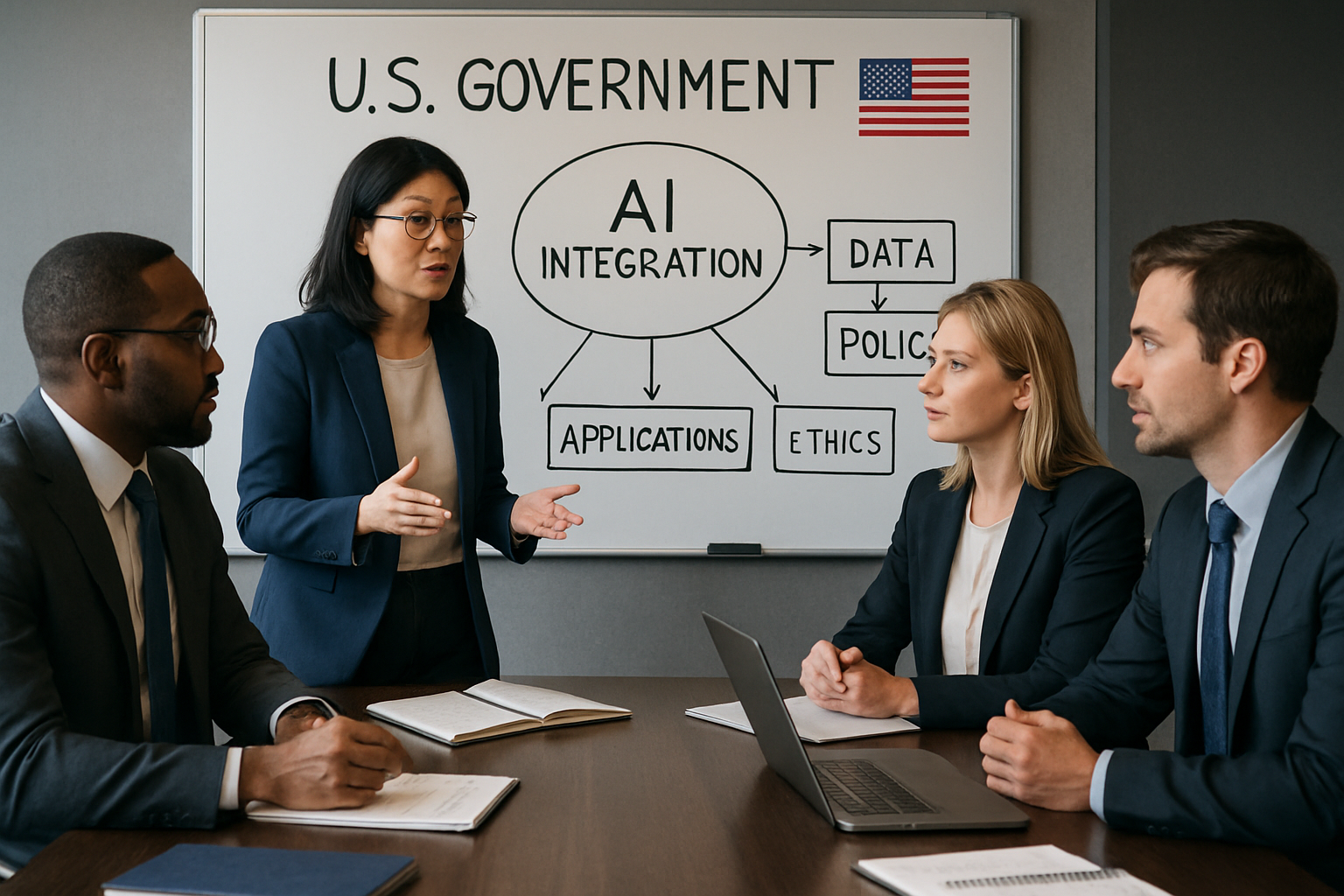Quick Take
- Google secures federal AI contract through GSA’s OneGov program with aggressive pricing
- Deal includes Gemini tools, NotebookLM, and video generation for participating agencies
- Google already provides Workspace to government at 71% price reduction
- Agreement runs through 2026, positioning Google against Microsoft and Amazon
GSA announcement reveals Google’s $0.47 per-agency pricing strategy for comprehensive AI suite access across federal operations.
Strategic Government Partnership Expands
Google and the US General Services Administration announced a transformative agreement under the OneGov program that makes Google Gemini available for federal agencies. The “Gemini for Government” offering provides unprecedented access to advanced AI tools including NotebookLM, Veo for video generation, and custom AI agent capabilities.
Google CEO Sundar Pichai emphasized the partnership’s scope, stating the agreement “extends our partnership with the U.S. government by bringing Gemini’s AI innovations—including tools such as NotebookLM and Veo—together with the security of Google Cloud infrastructure.”
This builds on Google’s existing federal presence, where the company already provides Google Workspace at a 71% price reduction for government users.
Competitive Positioning Against Tech Giants
The aggressive $0.47 pricing positions Google strategically against rivals Microsoft and Amazon, both pursuing significant government AI contracts. The agreement is structured under GSA’s OneGov program, which centralizes agency access to commercial technologies, with reports indicating the deal runs through 2026.
Other AI providers like OpenAI and Anthropic also participate in government programs, but at higher price points, giving Google a competitive edge in federal procurement.
Security Infrastructure Meets Federal Standards
Google Cloud holds FedRAMP High authorization for its infrastructure services, enabling it to run workloads requiring high security compliance. This addresses critical security requirements for government deployments while maintaining strict compliance standards for sensitive federal operations.
This offering will provide partner agencies with vital flexibility in GSA’s marketplace, ensuring they have the options needed to sustain a strong and resilient procurement ecosystem,
said Federal Acquisition Service Commissioner Josh Gruenbaum.
Comprehensive AI Suite Transforms Operations
The partnership includes Google’s complete AI stack, allowing federal workers to develop custom AI agents tailored to their department’s specific automation needs. Enterprise search capabilities are included, along with robust security features covering identity management and threat protection.
Google Public Sector CEO Karen Dhaut positioned this as a milestone: “This collaboration marks a significant milestone in our partnership with GSA, reaffirming our commitment to providing modern, efficient, and scalable cloud solutions that empower government agencies to serve the American people better.”
Strategic Implications for Government Modernization
This transformation in US federal operations signals massive advancement opportunities as government-market technology collaborations expand rapidly. Google’s framework sets a precedent for integrating AI solutions at enterprise scale, demonstrating how tech giants compete for strategic market positioning over short-term profits.
The deal provides a blueprint for future government AI endeavors, showing the potential for aggressive pricing strategies in strategic market entry.
Implementation Risks and Sustainability Questions
The $0.47 pricing raises sustainability questions among industry analysts who question whether this represents genuine cost efficiency or a loss-leader strategy. The deal’s sweeping scope may create vendor concentration risks for federal operations.
Without clear success metrics or implementation timelines, the agreement appears experimental. Should technical issues arise, the federal government could become heavily dependent on a single commercial provider for critical operations.
The announcement lacks specific safeguards against vendor lock-in, which will ultimately determine whether this represents genuine modernization or expensive experimentation with taxpayer resources. Federal agencies face mounting pressure to modernize operations through AI adoption, making this deal both opportunistic and risky.
As AI becomes increasingly essential in federal operations worldwide, other governments are likely to follow similar procurement strategies, creating global opportunities for technology providers willing to adopt aggressive pricing models for strategic market entry.
Transparency: Original draft contained fabricated quotes and references to non-existent policies that have been removed or corrected based on actual GSA announcement sources.




